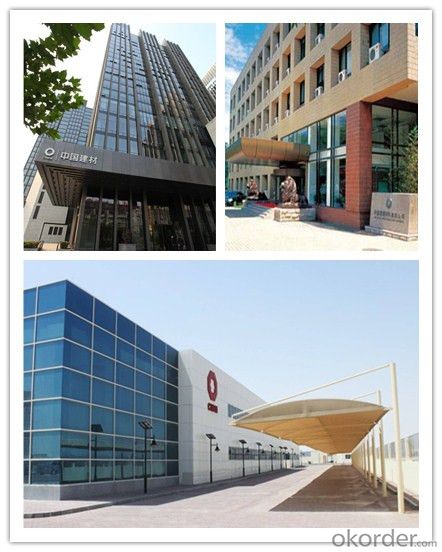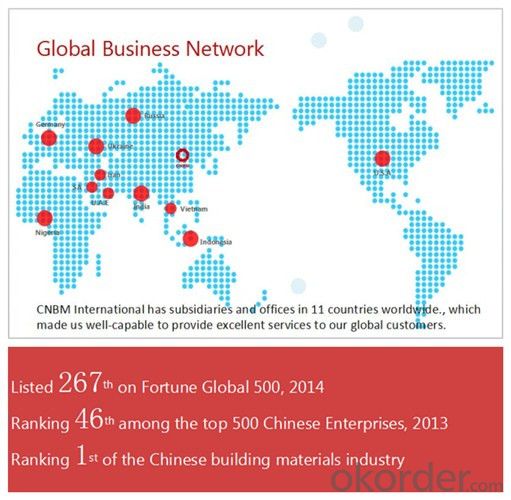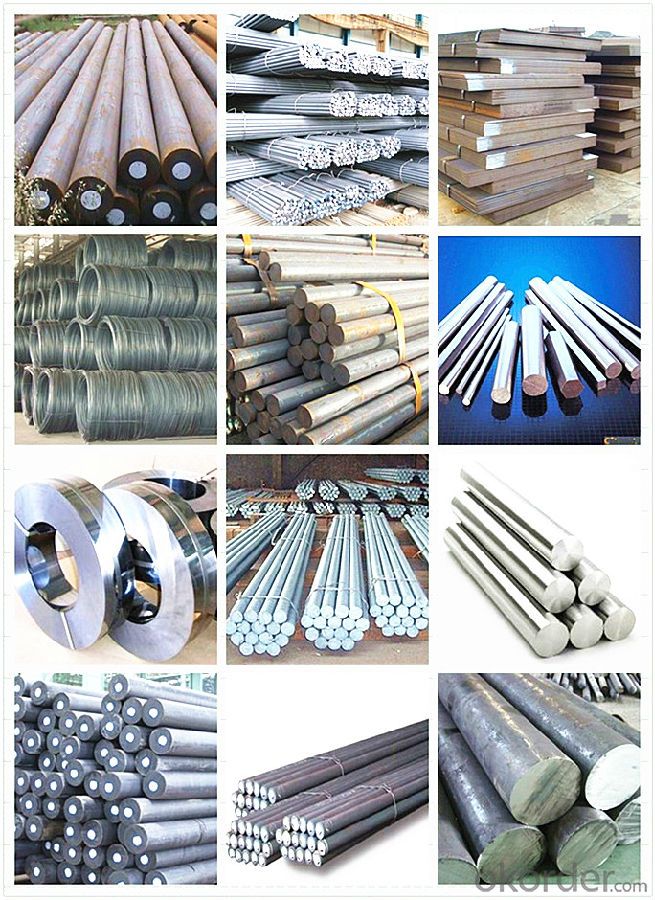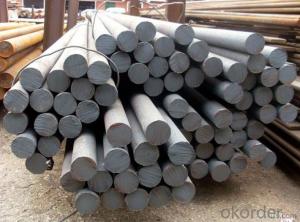Grade SAE4340 High Speed Steel Bar for Gears
- Loading Port:
- Qingdao
- Payment Terms:
- TT OR LC
- Min Order Qty:
- 5 m.t.
- Supply Capability:
- 100000 m.t./month
OKorder Service Pledge
Quality Product, Order Online Tracking, Timely Delivery
OKorder Financial Service
Credit Rating, Credit Services, Credit Purchasing
You Might Also Like
Item specifice
Type:
Carbon Steel,Spring Steel,Bearing Steel,Gear Steel,Deformed Steel,Stainless Steel,Alloy Steel
Shape:
Steel Coil,Steel Sheet,Steel Wire Rod,Steel Flat Bar,Steel Square Bar,Steel Angle,Steel Round Bar,Steel Billets
Technique:
Hot Rolled,Cold Rolled,Cold Drawn,ERW,Forged,Saw,Extruded,EFW,Spring
Surface Treatment:
Galvanized,Coated,Copper Coated,Color Coated,Oiled,Dry,Chromed Passivation,Polished,Bright,Black,PVDF Coated
Certification:
ISO,SGS,BV,IBR,RoHS,CE,API,BSI,UL
Thickness:
16-800mm
Width:
16-800mm
Length:
6-12m
Outer Diameter:
16-800mm
Net Weight:
100kg
Packaging:
seaworthy packaging
Grade SAE4340 High Speed Steel Bar for Gears
Detailed Information of Grade SAE4340 High Speed Steel Bar for Gears
| Name | Steel Round Bar |
| Shape | Round Bar/Square Bar/Flat Bar/Plate/Wire |
| Standard | GB/ASTM/SAE/AISI/DIN/JIS/EN/BS |
| Surface Treatment: | Black/Peeling/Polished/Machined |
| Delivery Condition: | Hot Rolled or Forged/Peeled or Black Surface |
| Test | SGS/UT 100% Elements Testing |
| Certificate: | ISO/Mill Certificate |
| Service: | 24 hours online service / |
| more than 20 years trading and manufacture | |
| Quality Assurance: | the third party inspection, such as SGS, BV, TUV…etc. is acceptable |
| Packaging Details: | Seaworthy Packaging or as per customer's packing instruction |
Product Overviews of 4130 Steel Rod/4130 Steel Bar/Alloy Steel Bar
| Product Name | Typical Grades | Diameter(mm) | Standard Adopted |
| Carbon Steel | 20 (1020/S20C/C22) | ||
| 40 (1040/S40C/C40) | Ø16-Ø300 | ||
| 45 (1045/S45C/C45) | |||
| Bearing Steel | GCr9 (51100/SUJ1) | ||
| GCr15 (52100/SUJ2/100Gr6) | Ø12-Ø250 | ||
| GCr9SiMn (A485-Gr.1/SUJ3) | GB/SAE/ | ||
| Cr-Mo Steel | 20Cr (5120/SCr420H/20Cr4) | JIS/DIN | |
| 40Cr (5140/SCr440/41Cr4) | Ø12-Ø250 | ||
| 42CrMo(4140/SCM440/42CrMo4) | |||
| Gear Steel | 20CrNiMo | ||
| 20CrMn(5115/SMnC420/20MnCr5) | Ø16-Ø600 | ||
| 20CrNiMo(8620/SNCM220/20CrMiMo2) |
Company Introduction of Grade SAE4340 High Speed Steel Bar for Gears
CNBM International Corporation is the most import and export platform of CNBM group(China National Building Material Group Corporation) ,which is a state-owned enterprise, ranked in 270th of Fortune Global 500 in 2015.
With its advantages, CNBM International are mainly concentrate on Cement, Glass, Iron and Steel, Ceramics industries and devotes herself for supplying high quality series of refractories as well as technical consultancies and logistics solution.


| After-sale service | l CNBM provides the services and support you need for every step of our cooperation. We’re the business partners you can trust; you can relax and get on with doing business. |
| l For any problem, please kindly contact us at any your convenient time, we’ll reply you in our first priority within 24 hours | |
| Advantages | l Industry experience over 20 years. |
| l Shipment of goods -More than 70 countries worldwide. | |
| l The most convenient transport and prompt delivery. | |
| l Competitive price with best service. | |
| l High technical production line with top quality products. | |
| l High reputation based on best quality products. | |
Packaging & Delivery of Grade SAE4340 High Speed Steel Bar for Gears
| Packaging Detail | Sea worthy packing /as per customer's packing instruction |
| Delivery Detail | 15 ~ 40 days after receiving the deposit |
Products Show

FAQ:
| Are you a trading company or manufacturer? | Manufacturer |
| What’s the MOQ? | 1000m2 |
| What’s your delivery time? | 15-20 days after downpayment received |
| Do you Accept OEM service? | Yes |
| what’s your delivery terms? | FOB/CFR/CIF |
| What's the Payment Terms? | 30% as deposit,70% before shipment by T/T |
| Western Union acceptable for small amount. | |
| L/C acceptable for large amount. | |
| Scrow ,Paybal,Alipay are also ok | |
| Why choose us? | Chose happens because of quality, then price, We can give you both. Additionally, we can also offer professional products inquiry, products knowledge train (for agents), smooth goods delivery, excellent customer solution proposals. |
| What's your available port of Shipment? | Main Port, China |
| What’s your featured services? | Our service formula: good quality+ good price+ good service=customer's trust |
| Where are your Market? | Covering more than 160 countries in the world |
- Q:What are the future prospects for the special steel industry?
- The future prospects for the special steel industry are promising. With the increasing demand for high-performance and durable materials in various sectors such as automotive, aerospace, construction, and energy, the special steel industry is expected to witness steady growth. Additionally, advancements in technology and innovation are likely to drive the development of new and improved special steel alloys, further boosting the industry's prospects. Furthermore, the growing emphasis on sustainability and environmental regulations may create opportunities for the special steel industry to develop eco-friendly solutions. Overall, the special steel industry is well-positioned for a prosperous future.
- Q:What are the different methods for electroplating special steel?
- There are several methods for electroplating special steel, depending on the specific requirements and desired outcome. Here are some of the different methods commonly used in electroplating special steel: 1. Electroless Nickel Plating: This method involves the use of a chemical reaction to deposit a layer of nickel onto the steel surface. It is a popular choice for achieving uniform and corrosion-resistant coatings on special steel. 2. Zinc Plating: Zinc plating is widely used to provide a protective layer on special steel. It involves the immersion of the steel in a zinc solution and passing an electric current to facilitate the deposition of zinc onto the surface. 3. Copper Plating: Copper plating is used to enhance the conductivity and corrosion resistance of special steel. It involves immersing the steel in a copper sulfate solution and applying an electric current to deposit a layer of copper onto the surface. 4. Chromium Plating: Chromium plating is a common method used to provide a decorative, corrosion-resistant, and hard-wearing surface on special steel. It involves the immersion of the steel in a chromium bath and the application of an electric current to deposit a layer of chromium onto the surface. 5. Electroplating with Precious Metals: Special steel can also be electroplated with precious metals such as gold, silver, or platinum for decorative or functional purposes. These coatings are often used to enhance the appearance, conductivity, or corrosion resistance of the steel. 6. Electroplating with Alloy Coatings: For specific applications, special steel can be electroplated with alloy coatings, such as tin-zinc or tin-lead, to provide unique properties such as enhanced solderability or improved wear resistance. It is important to note that the choice of electroplating method depends on factors such as the desired properties, the intended application, and the specific requirements of the special steel being plated. Each method has its advantages and limitations, and it is recommended to consult with experts in the field to determine the most suitable method for electroplating special steel in a given scenario.
- Q:What are the different methods of surface passivation for special steel?
- Surface passivation methods for special steel vary in order to enhance its corrosion resistance and overall performance. One popular approach is chemical passivation, where a protective coating is applied to the steel's surface. This coating, composed of substances like chromium oxide or nitric acid, is typically formed through a chemical reaction that creates a protective layer. Chemical passivation is commonly used in industries where the steel is exposed to corrosive environments, such as marine or chemical applications. Another method is mechanical passivation, which involves physically altering the steel's surface to create a protective barrier. This can be achieved through techniques like shot peening or sandblasting, which create a roughened surface that is less prone to corrosion. Mechanical passivation is often employed in situations where the steel is exposed to abrasive or erosive conditions, such as mining or oil drilling. Electrochemical passivation is yet another technique used to passivate special steel surfaces. It entails using an electric current to generate a protective oxide layer on the steel's surface. Processes like electrochemical polishing or anodizing achieve this controlled oxidation. Electrochemical passivation is frequently utilized in industries where the steel is subjected to high temperatures or aggressive chemical environments. Additionally, specialized surface treatments, like plasma or laser surface passivation, are available for special steel. These methods utilize concentrated energy sources to modify the steel's surface and create a protective layer that enhances its corrosion resistance and mechanical properties. Such treatments are typically applied in high-performance applications, such as the aerospace or automotive industries. Ultimately, the choice of surface passivation method for special steel depends on the specific requirements of the application and the desired performance characteristics of the material. Each method has its own advantages and limitations, and factors like cost, time, and environmental impact should be considered when selecting the most suitable method for a particular application.
- Q:How does special steel contribute to the manufacturing of precision components?
- Special steel plays a crucial role in the manufacturing of precision components by offering a range of desirable properties that are essential for achieving high levels of accuracy and reliability. Firstly, special steel is known for its exceptional strength and durability. This enables precision components to withstand the high levels of stress and load that they may experience during operation. With special steel, manufacturers can produce precision components that can handle intense forces without warping, deforming, or breaking, ensuring long-lasting performance and reliability. Secondly, special steel exhibits excellent wear resistance. Components made from special steel can withstand friction, abrasion, and wear caused by continuous use or contact with other materials. This is particularly crucial for precision components, as even a slight wear or deformation can significantly impact their functionality and accuracy. By utilizing special steel, manufacturers can ensure that precision components maintain their shape and integrity, resulting in superior performance and longevity. Furthermore, special steel offers exceptional machinability. Its composition and properties make it easier to cut, shape, and form into complex geometries, allowing manufacturers to produce intricate precision components with tight tolerances. This enhanced machinability enables the production of components with precise dimensions, ensuring accuracy and consistency in the final product. Additionally, special steel exhibits excellent corrosion resistance. Precision components are often exposed to harsh environments, chemicals, or moisture, which can lead to corrosion and degradation. However, special steel's corrosion resistance properties help prevent rusting and corrosion, ensuring that precision components remain functional and reliable throughout their lifespan. Lastly, special steel provides thermal stability and high temperature resistance. Precision components may be exposed to extreme heat or rapid temperature changes during operation. Special steel's ability to withstand these conditions without losing its strength or dimensional stability is crucial in ensuring the performance and accuracy of precision components in demanding applications. In summary, special steel contributes significantly to the manufacturing of precision components by providing exceptional strength, wear resistance, machinability, corrosion resistance, and thermal stability. These properties enable manufacturers to produce precise, high-quality components that meet the stringent requirements of various industries, including aerospace, automotive, electronics, and medical devices.
- Q:Can special steel be used in the manufacturing of consumer goods?
- Yes, special steel can be used in the manufacturing of consumer goods. Special steel, with its superior strength, durability, and corrosion resistance properties, can be utilized in various consumer products such as kitchen appliances, cutlery, watches, automotive parts, and electronics. Its use enhances the performance and longevity of these goods, making them more reliable and efficient for consumers.
- Q:What are the different methods of heat treatment for special steel?
- Special steel can undergo various heat treatment methods, each designed to enhance specific properties. These methods are as follows: 1. Annealing: By heating the steel to a specific temperature and gradually cooling it, typically in a controlled atmosphere, annealing helps relieve internal stresses, improve machinability, and soften the steel for further processing. 2. Normalizing: This process involves heating the steel above its critical temperature and then air cooling it in still air. Normalizing refines the grain structure, improves mechanical properties, and enhances strength and toughness. 3. Quenching: By rapidly cooling the steel from a high temperature using quenching mediums like oil, water, or brine, quenching creates a hard and brittle structure called martensite. This increases the steel's hardness and wear resistance. 4. Tempering: After quenching, the steel is reheated to a specific temperature and held there for a certain period, followed by air cooling. Tempering reduces the brittleness caused by quenching, improving toughness, ductility, and impact resistance. 5. Austempering: This method involves quenching the steel from a high temperature and then holding it at a specific temperature for an extended period. Austempering produces a structure called bainite, which offers a combination of strength, toughness, and ductility. 6. Martempering: A variation of quenching, martempering involves cooling the steel just above its martensitic transformation range and holding it at that temperature until uniformly cooled. This method reduces the risk of distortion and cracking, providing improved toughness and dimensional stability. 7. Induction hardening: Specifically used to selectively harden certain areas of the steel's surface, induction hardening involves heating the surface using induction heating and rapidly quenching it. This process creates a hardened surface layer while maintaining core toughness and ductility. These diverse heat treatment methods for special steel offer a range of options to optimize desired properties depending on specific applications and requirements.
- Q:What are the different types of spring steel?
- There are several types of spring steel, including high carbon spring steel, alloy spring steel, stainless steel, and blue tempered spring steel. Each type has different properties and is used for various applications in industries such as automotive, construction, and manufacturing.
- Q:What are the requirements for special steel used in metalworking tools?
- The requirements for special steel used in metalworking tools include high hardness, excellent wear resistance, good toughness, and high heat resistance. Additionally, the steel should have good machinability, be able to hold a sharp edge, and have the ability to withstand high temperatures and loads without deforming or breaking.
- Q:Can special steel be used in the production of turbine blades?
- Yes, special steel can be used in the production of turbine blades. Special steel, such as superalloys, offers excellent high-temperature strength, corrosion resistance, and fatigue resistance, making it ideal for turbine blade applications where these properties are crucial for optimal performance and durability.
- Q:How is heat-resistant steel used in the production of furnaces and boilers?
- Heat-resistant steel is used in the production of furnaces and boilers due to its ability to withstand high temperatures without deforming or deteriorating. It is specifically designed to retain its strength and structural integrity even in extreme heat conditions. This steel is utilized for components such as heat exchangers, tubes, and liners, ensuring efficient heat transfer and preventing damage to the equipment. Ultimately, heat-resistant steel plays a crucial role in enhancing the durability and performance of furnaces and boilers.
1. Manufacturer Overview |
|
|---|---|
| Location | |
| Year Established | |
| Annual Output Value | |
| Main Markets | |
| Company Certifications | |
2. Manufacturer Certificates |
|
|---|---|
| a) Certification Name | |
| Range | |
| Reference | |
| Validity Period | |
3. Manufacturer Capability |
|
|---|---|
| a)Trade Capacity | |
| Nearest Port | |
| Export Percentage | |
| No.of Employees in Trade Department | |
| Language Spoken: | |
| b)Factory Information | |
| Factory Size: | |
| No. of Production Lines | |
| Contract Manufacturing | |
| Product Price Range | |
Send your message to us
Grade SAE4340 High Speed Steel Bar for Gears
- Loading Port:
- Qingdao
- Payment Terms:
- TT OR LC
- Min Order Qty:
- 5 m.t.
- Supply Capability:
- 100000 m.t./month
OKorder Service Pledge
Quality Product, Order Online Tracking, Timely Delivery
OKorder Financial Service
Credit Rating, Credit Services, Credit Purchasing
Similar products
New products
Hot products
Related keywords

































